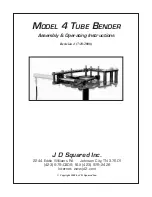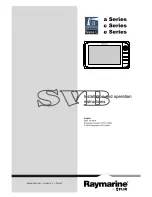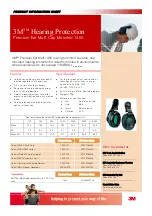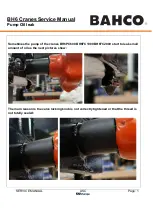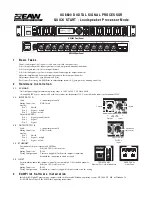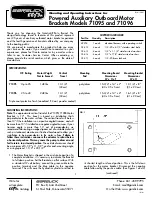
6
5. Always ensure that the oxygen reservoir tube is not blocked, as blocking
the tube can prevent the compression bag from reinflating, which can result in
no possible ventilation.
6. Do not use the product if contaminated by external sources, as this can
cause infection.
7. Always visually inspect the product and perform a functionality test after
unpacking, assembly and prior to use, as defects and foreign matters can
lead to no or reduced ventilation of the patient.
8. Do not use the product if functionality test fails, as this can lead to no or
reduced ventilation.
9. Do not override the pressure-limiting valve unless a medical assessment indicates
the necessity. High ventilation pressures may cause barotrauma.
10. For single patient use only. Use on other patients can cause cross infection.
11. Medication cannot be delivered through the M-port if accessories (e.g. filter, CO
2
detector) are connected between the resuscitator and the face mask.
12. Do not leave M-port open after use, in order to avoid leakage, which may lead to
reduced O
2
delivery to the patient.
13. The M-Port should not be used for side-stream EtCO
2
monitoring of patients ventilated
with less than 400 ml Tidal Volume, to avoid inaccurate EtCO
2
measurements.
14. When administering medication with a volume below 1 ml, it is required to flush
the M-Port to ensure accurate medication dosage delivered.
15. Do not attach oxygen supply tubing to the M-port, as the intended O
2
concentration
will not be delivered to the patient.
16. Adding accessories may increase inspiratory and/or expiratory resistance. Do not
attach accessories if increased breathing resistance would be detrimental to
the patient.
17. Only to be used by intended users who are familiar with the content of this manual,
as incorrect use might harm the patient.
18. When using supplemental oxygen, do not allow smoking or use of device near
open flame, oil, grease, other flammable chemicals or equipment and tools,
which cause sparks, due to the risk of fire and/or explosion.
19. Do not attempt to attach any demand valve to the infant version, as this can cause
high oxygen concentrations, which might be harmful to neonates.
20. Be aware of complete/partial upper airway obstruction signs when using the
resuscitator attached to a face mask, as this will lead to no or limited oxygen
delivery. Always switch to an alternative to using a face mask for directing air to the
patient, if available.
21. Do not use product with attached face mask when ventilating infants with
congenital diaphragmatic hernia due to the risk of insufflation. Switch to an
alternative to using a face mask for directing air to the patient, if available.
22. Professionals performing the procedure should assess the choice of resuscitator
size and accessories (e.g. face mask, PEEP valve, etc.) in accordance with the
patient’s specific condition(s), as incorrect use may harm the patient.
23. Do not use the Ambu SPUR II when delivery of free-flow oxygen is needed due to
possible insufficient administration of oxygen, which can lead to hypoxia.
24. The Manometer cap must always be put on the Manometer port when pressure is
not being monitored to avoid leakage, which may lead to reduced O
2
delivery to
the patient.
25. Always pre-attach the oxygen tube to the oxygen supply at temperatures above
0 °C, as mounting can become difficult at temperatures below 0 °C, thereby leading
to reduce oxygen delivery to the patient.
26. When using the resuscitator with attached face mask, ensure correct positioning
and sealing of the face mask, as improper sealing can lead to spreading of airborne
infectious disease to the user.
Summary of Contents for SPUR II
Page 1: ...INSTRUCTIONS FOR USE Ambu SPUR II Disposable...
Page 16: ...16 4 2 2 2 2 1 2 2 0 C 0 C 10 l min 10 l min M Port M Port M Port 2 3 4 3 3 1 3 2...
Page 48: ...48 1 5 PEEP 4 2 4 2 1 4 2 2 0 C 4 2 2 2 2 1 2 2 0 C 0 C 10 l min 10 l min 2 3 4 3 3 1...
Page 170: ...170 1 4 1 2 3 Ambu PEEP 4 5 6 7 8 9 10 11 CO2 12 O2 13 EtCO2 400 EtCO2 14 1 15 O2 16 17 18 19...























